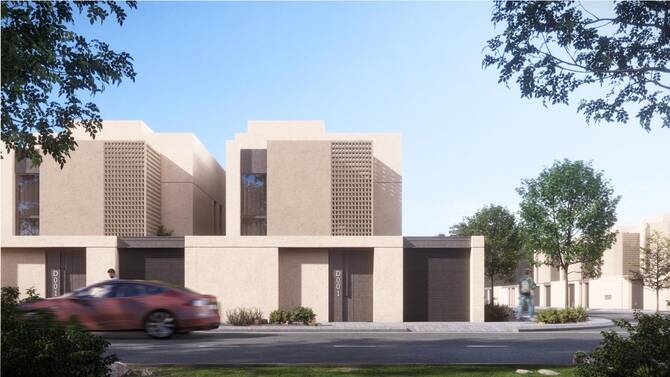RIYADH: Saudi Arabia’s non-oil private sector continued to expand in April, with the Riyad Bank Purchasing Managers’ Index reaching 55.6, indicating sustained growth in business activity, a new survey showed.
According to the latest Riyad Bank Saudi Arabia PMI report compiled by S&P Global, the April reading marked a slight drop from 58.1 in March but remained comfortably above the neutral 50.0 mark that separates expansion from contraction.
Despite the marginal decline, Saudi Arabia’s PMI for April was still higher than the UAE’s reading of 54.0 and Kuwait’s 54.2.
Naif Al-Ghaith, chief economist at S&P Global Market Intelligence, said: “As of April 2025, Saudi Arabia’s non-oil economy continues to assert itself as a pivotal component of the nation’s economic landscape.”
He added: “The diversification efforts have continued to bear fruit, underscoring the Kingdom’s strategic shift away from oil dependency toward a more balanced and sustainable economic framework.”
The PMI survey signalled a strong increase in employment levels across the non-oil private sector in April.
The rate of hiring growth accelerated to its joint-fastest pace in ten and a half years, matching the level recorded in October 2023, as companies expanded their staffing capacity in response to rising sales and increased activity.
As a result, staff cost inflation surged to a record high in April, reversing the slowdown in cost pressures seen in March.
“Employment in the non-oil private sector has been particularly vibrant. This surge in employment is a response to rising sales and increased business activity, prompting firms to expand staffing capacities,” said Al-Ghaith.
The report added that business activity at Saudi Arabia’s non-oil companies increased sharply at the start of the second quarter, with firms commonly reporting an expansion in output due to higher sales, new project approvals, and strong tourist numbers.
“While output growth remains robust, it is somewhat tempered by global economic uncertainties and competitive pressures affecting client spending. Nonetheless, employment figures continue to climb, indicating a sustained growth trend since last May,” added Al-Ghaith.
He further noted that Saudi Arabia had successfully managed inflation compared to other nations, highlighting the Kingdom’s effective control of domestic prices amid global uncertainties.
The latest PMI data also signalled a steep increase in purchasing activity, with the growth rate reaching a three-month high.
S&P Global noted that expectations among non-oil firms for output in one year’s time increased slightly from March, although overall business optimism remained below the long-run survey average.
Looking ahead, Al-Ghaith said the Kingdom’s fiscal prospects remain positive for 2025.
“Forecasts suggest a 3 percent expansion in overall gross domestic product and a 4.5 percent increase in non-oil sectors, continuing the upward trajectory in non-oil activities,” said Al-Ghaith.
He added: “This growth is crucial for sustaining the economic transformation outlined in Vision 2030, which aims to foster diverse, innovative industries.”























